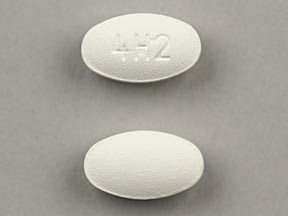What are the uses of Cetirizine?
- Relieves allergy symptoms
- Watery eyes
- Runny nose
- Itching eyes/nose
- Sneezing
- Hives
- Itching
- Treatment of uncomplicated skin manifestations of chronic idiopathic urticaria
What are the available dosage forms?
- Tablet
- Oral-disintegrating tablet
- Chewable tablet
- Syrup
- Solution
- Injectable solution
What is the maximum dose of Cetirizine?
- Maximum dose: 10 mg/day
What are the drug interactions?
There are no severe interactions of Cetirizine.
Serious interactions of Cetirizine include:
- Isocarboxazid
- Tranylcypromine
Moderate interactions of Cetirizine include:
- Bosutinib
- Clobazam
- Crizotinib
- Daclatasvir
- Eliglustat
- Hyaluronidase
- Lomitapide
- Lurasidone
- Ombitasvir/Paritaprevir/Ritonavir
- Phenelzine
- Ponatinib
- Ritonavir
- Vemurafenib
Mild interactions of Cetirizine include:
- Dyphylline
- Theophylline
What are the conditions where Cetirizine should be avoided?
- Alcohol, sedatives, and tranquilizers can increase drowsiness.
What are the side effects associated with using Cetirizine?
Common side effects include:
- Sleepiness
- Headache
- Fatigue
- Dry mouth
- Diarrhea
- Malaise
- Difficulty breathing
- Vomiting
- Nosebleed
- Stomach pain
- Drowsiness
- Rapid swelling
- Hallucinations
- Low blood pressure
- Tremor
- Tongue discoloration
What are the brands available?
Alatrol, Alerid, Allacan, Allercet, Alzene, Cerchio, Cetirin, Cetizin, Cetriz, Cetzine, Cezin, Cetgel, Cirrus, Histec, Histazine, Humex, Letizen, Okacet, Piriteze, Reactine, Razene, Rigix, Sensahist (Oethmann, South Africa), Triz, Zetop, Zirtec, Zirtek, Zodac, Zyllergy, Zynor, Zyrlek, and Zyrtec.


